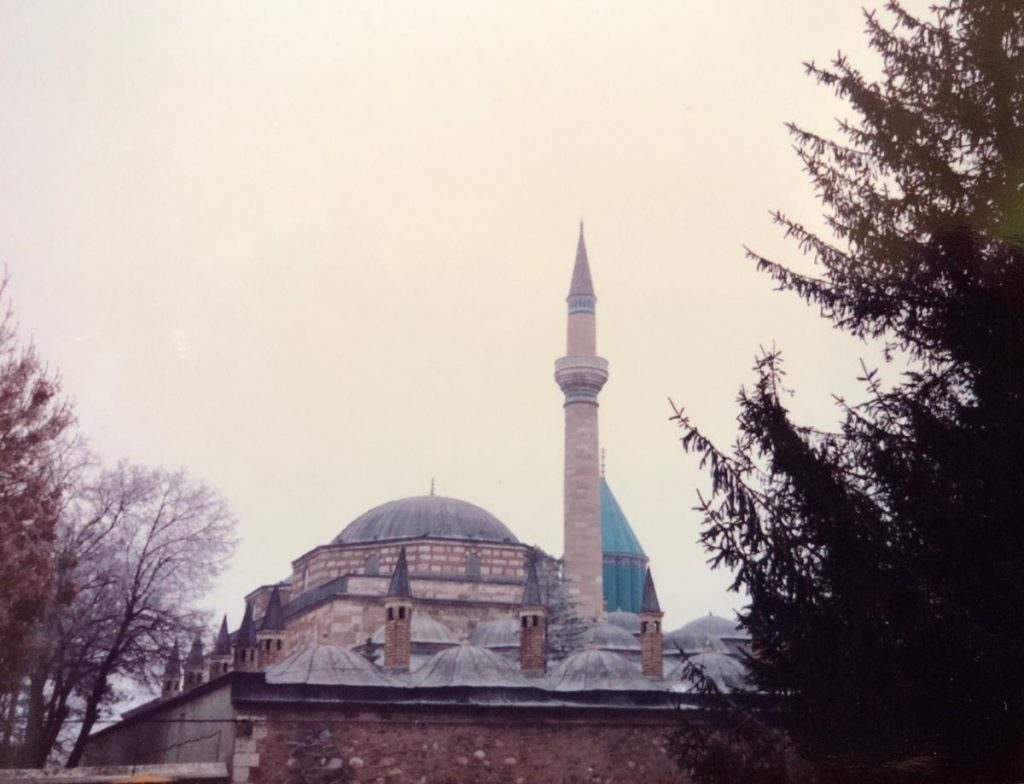| Acts 14 St. Paul has long intrigued me, and I have retraced portions of his footsteps on multiple occasions. I’d like to do that again…with a tour group from St. Paul’s…? In this portion of the Book of Acts Paul has arrived at Perga, and is working through coastal towns before heading up the quite challenging mountain route to Pisidian Antioch (not to be confused with Syrian Antioch in Hatay province near contemporary Iskenderun, where his first missionary journey began) and then up to Iconium. There’s some nostalgia in today’s post, as I am especially fond of this coastal section of Turkey, with its fine Mediterranean swimming coves and amazing ruins. Then we’ll arrive at Iconium / Konya way up on the Anatolian plateau. St. Paul was a man on a mission, but that does not mean he wasn’t also an adventurer. Perga, Side, Aspendos, Attalia (Antalya today) were spectacular places then (and remain so now). Paul, a privileged Roman citizen from Tarsus located on the Cilician Plain, perhaps educated under Gamaliel in Jerusalem, was no rube. He must have been inquisitive, curious, and fascinated by many of the places to which his ventures carried him. |

| Successful proclamation of the Gospel led to many new adherents (and jealousies) in Iconium, today called Konya. Konya currently remains a major center for Sufism (suffering suppression under less inviting iterations of Islam), and there aren’t too many Christians about. The city is full of Seljuk doorways, winsome mosques, and the Tekke of Mevlana Cellaladin Rumi, mystic poet and founder of the Whirling Dervish expression of ecstatic worship. Should you wish to read more of Sufism, you might want to visit my essay from ‘Studia Mystica’ HERE. If we wish to be reminded that there is nothing permanent about Christian conversion, we need look no further than the nation of Turkey or the town of Konya. There is a tumulas in the center of Konya, a mound where sacred sites have accumulated in strata to create the only ski-able hill in town. A mosque dots the top. Under the mosque are the remains of a large church. Under the church…; well, as we know here in Mexico, the gods change, but the sites remain the same. For those who think Western civilization derives in large measure from the legacy of Christianity, and that Christianity and Western civilization have gotten more than a few things right, a visit to Konya is a reminder of what can be lost. Zeus lost out in Lystra, where Barnabas and Paul flee after having met adversity in Iconium. We hear no more of Zeus these days, except when reading the classics. Will this be the fate of Jesus? That is up to you. A tremendous and much appreciated miracle is wrought in Lystra, and the locals mistake Barnabas and Paul for their own deities: Zeus and Hermes. The apostles are horrified, but speak to the priest of Zeus and to all the people about the Universal God who “has not left himself without a witness in doing good—giving rains from heaven, and fruitful seasons, and filling you with food and your hearts with joy.” What a winsome message. The Lycaonians still want to sacrifice to Barnabas and Paul, though others arrive and instead Barnabas and Paul are brutally stoned, dragged from the city, and left for dead. As much as I admire the adventuresome spirit of Barnabas and Paul, this would test the patience of even the most recondite traveler. Hence, they call it quits and retrace their footsteps, perhaps pausing for a spa visit in Attalia / Antalya before sailing back to Antioch (of Syria, where the Church was first called Christian). Home sweet home again; they celebrate God’s work among the Gentiles, and remained contentedly in Antioch (where they have very good kebabs) for some happy while. Grace and peace, The Reverend Canon George F. Woodward III For Travelers “O God, our heavenly father, whose glory fills the whole creation, and whose presence we find wherever we go: Preserve those who travel for the sake of the Good News, and preserve those who travel from necessity in this time of COVID-19; surround them with your loving care; protect them from every danger; and bring them in safety to their journey’s end; through Jesus Christ our Lord. Amen.” The Book of Common Prayer, page 831 Previous Reflections may be found on the parish website StPaulSMA.com under ‘Blogs’ here. YouTube postings are available here. Previous editions of THE EPISTLE can be found here. |

| St. Paul’s Anglican Church Calzada del Cardo, 6 Centro 37700, San Miguel de Allende, Mexico 415.121.3424 www.StPaulSMA.com |
